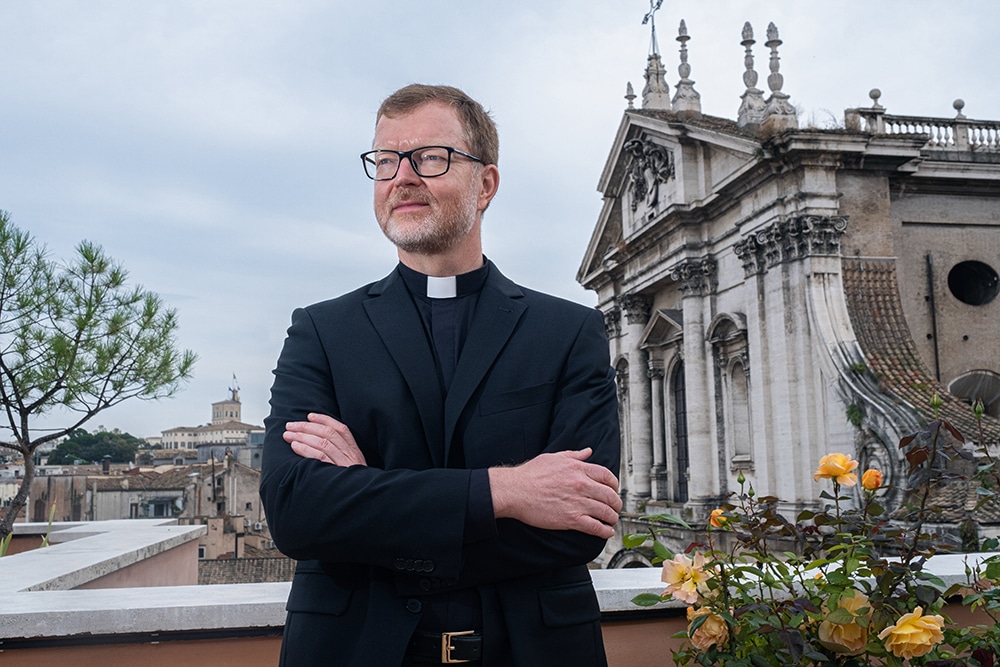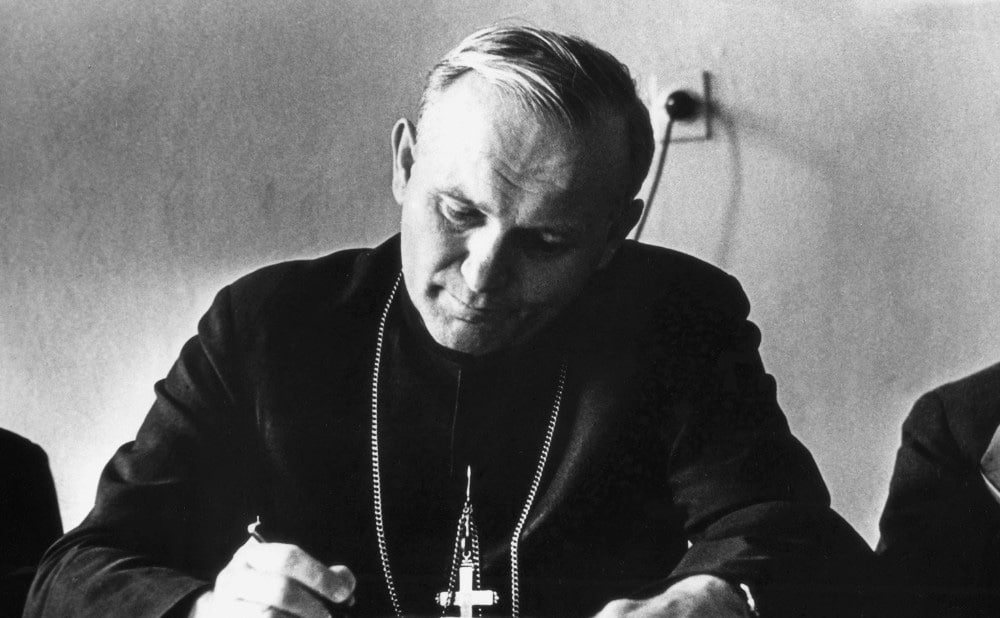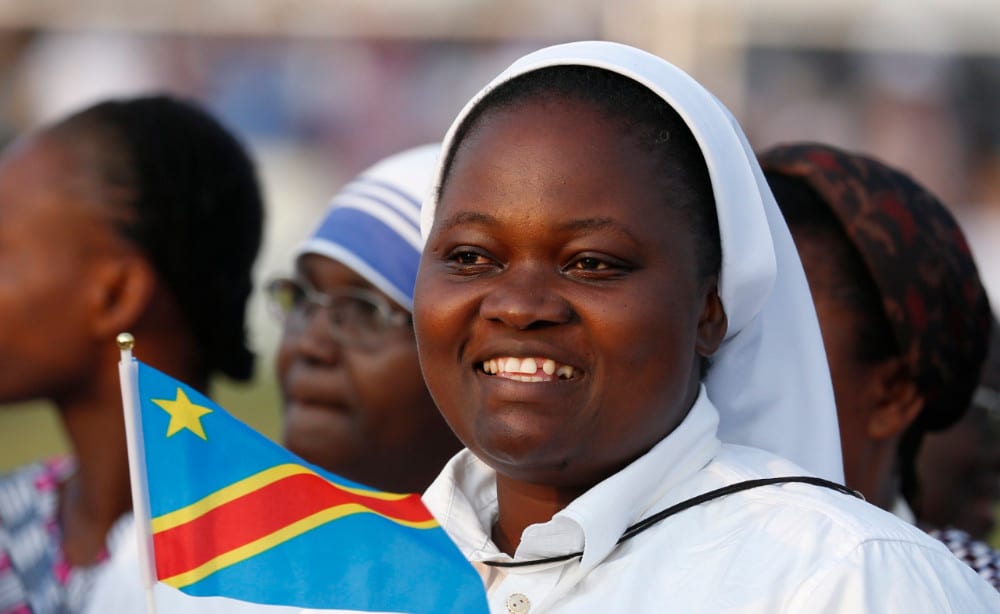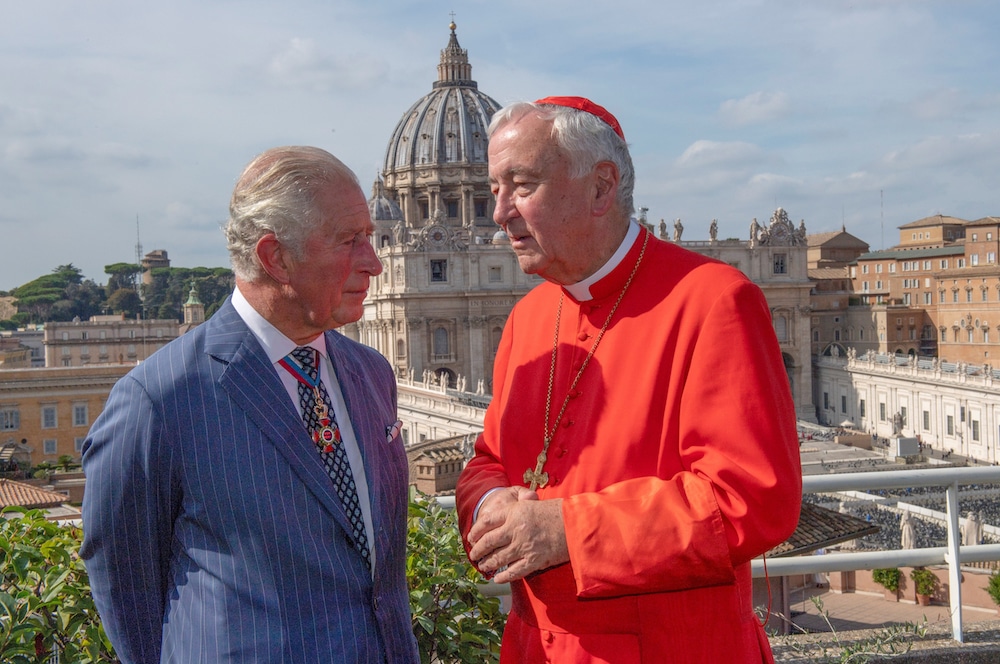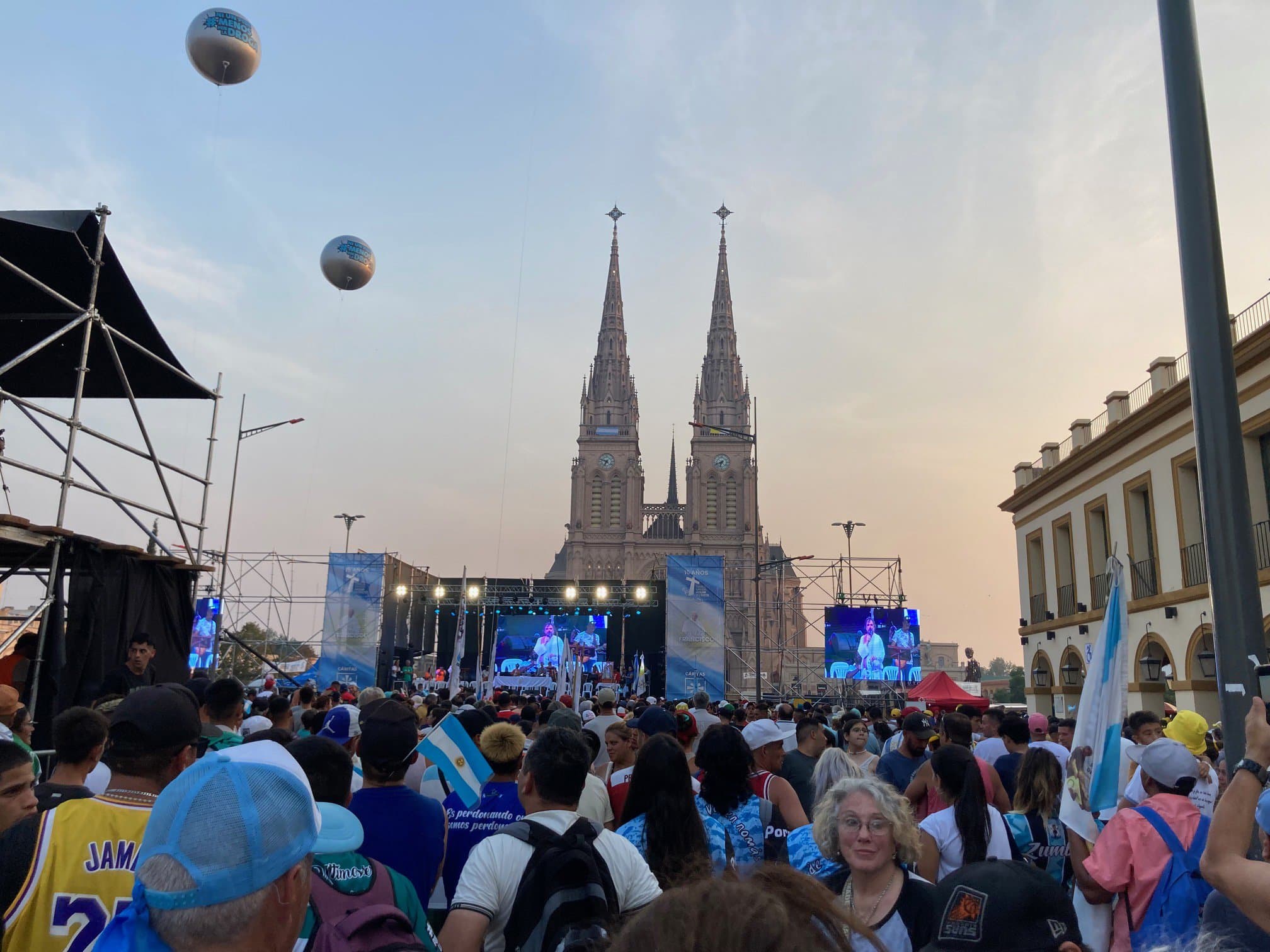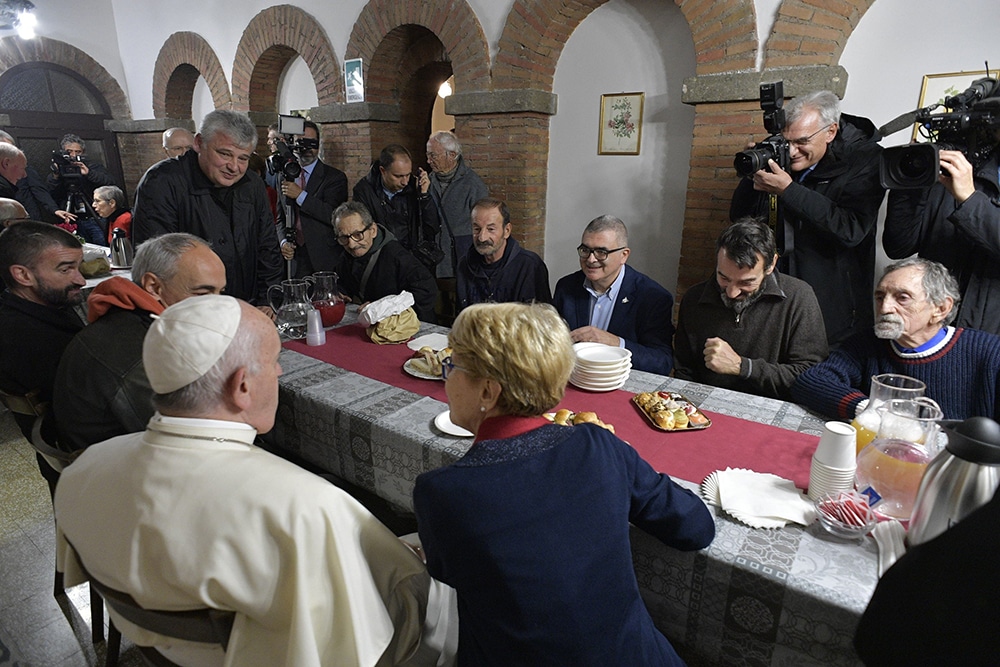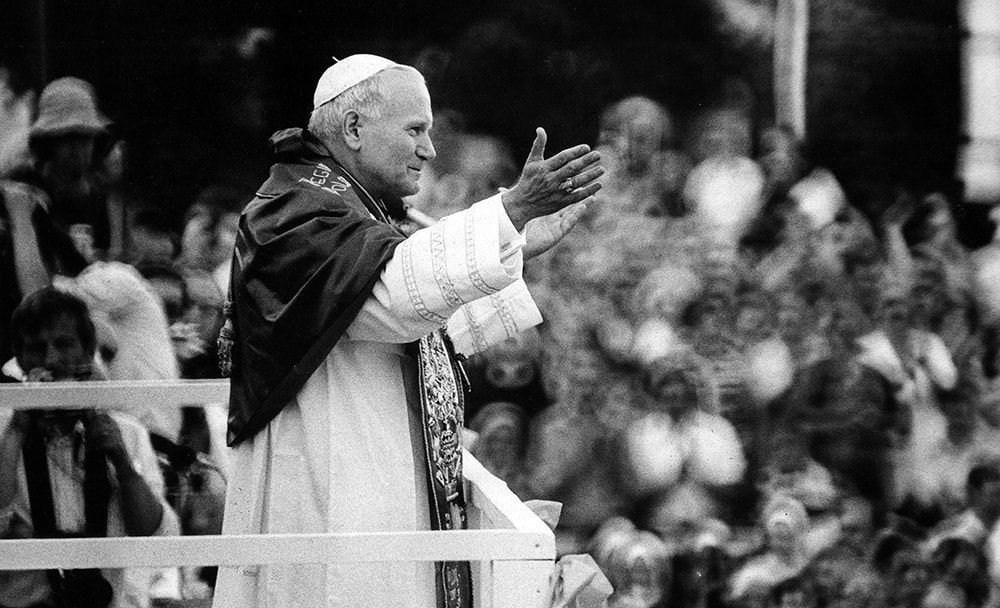ROME (OSV News) — On March 3, Jesuit Father Hans Zollner, Pope Francis’ point man on the clergy abuse crisis, was appointed as consultant to the Diocese of Rome’s newly established office dedicated to the protection of minors and vulnerable persons.
“I am committed to listening to survivors and to promoting education and formation in the field of safeguarding, and look forward to continuing to do so in this new role,” Father Zollner said in a March 3 statement following the announcement.
OSV News sat down with Father Zollner ahead of the announcement to ask about the state of the matter on abuse in the Church today. Father Zollner said that while the road to successfully tackling the clergy sexual abuse crisis globally remains a long one, he is hopeful that “there is some improvement.” But, he added, “it is a very, very slow process that needs constant input and constant reminder.”
The director of the Institute of Anthropology – Interdisciplinary Studies on Human Dignity and Care (IADC) in Rome spoke to OSV News on the fourth anniversary of the Vatican summit on child protection, which concluded Feb. 24, 2019, and was attended by presidents of bishops’ conferences across the globe.
Of the three pillars of the February 2019 summit — accountability, responsibility and transparency — the third one is visibly lacking in cases that are first reported by the media and only later by the institution, such as that of Jesuit Father Marko Rupnik’s, which was reported by Italian blogs — Silere non Possum, Left.it and Messa in Latino — in December 2022. Father Rupnik, a well-known mosaic artist and spiritual director, has been accused of spiritual, psychological or sexual abuse by multiple adult women over the course of almost 40 years. The Jesuits confirmed Feb. 21 that 14 new allegations had been reported. One allegation came from a former nun who would have been a minor at the time that grooming for alleged abuse would have begun.
If it is confirmed that Father Rupnik had abused a minor, “following canon law, I think he shouldn’t be a priest anymore,” said Father Zollner.
It is possible that, were he dismissed from the clerical state, Father Rupnik could remain within the Society of Jesus, Father Zollner added, referring to procedure that, in his words, “many people don’t understand and agree with,” but one that leaves control of the order over the abuser — control often nonexistent when the abuser simply becomes part of lay society after he is defrocked.
“This is not to say that he needs to be kept inside a community. That needs to be pondered very carefully,” Father Zollner said. “Getting rid of somebody can also be an easy way out and can create more occasions for further abuse.
However it all depends whether Father Rupnik follows the restrictions superimposed on him by the order: “If he does not follow the restrictions, it is a clear sign that he cannot be in religious life,” Father Zollner said.
Pointing to his own dealings with the religious order, Father Zollner said he “can’t understand” why not many more in the Society of Jesus among those who are “in social justice ministry, have really taken on this type of injustice,” i.e. with regard to the victims of sexual abuse.
“The Society of Jesus is a mixed reality as the whole Church is,” Father Zollner said, when asked about the lack of transparency in the Father Rupnik case. “We are not better at this. And it has been proven now, in the eyes of everybody, again.”
“We are all mixed bags. We are all very limited. We all have our flaws. And the Society of Jesus also has many flaws,” he said.
The Jesuits announced Feb. 21 that they will begin an internal procedure that could include further restrictions against Father Rupnik. The priest already has been barred from hearing confessions, offering spiritual direction and leading retreats. He also is required to have the permission of his superior before engaging in any public ministry, and he is forbidden from engaging in public artistic activity.
Asked what he thinks should be done with Father Rupnik’s art, which decorates famous churches and chapels from Washington to Lourdes, France, and from Krakow, Poland, to the Vatican itself, Father Zollner said, “First of all, I think he should not produce any new art. Secondly, I understand if people say ‘I can’t see that anymore.’ The perpetrator lives among us, the victims are with us, the discussion on the crimes and the way how to react is still ongoing. The question of how justice can be done to the victims is still open. In such a context I can hardly see how the works of Rupnik — who supposedly should bring people to God — can achieve this aim.
“But on the other hand,” Father Zollner said, “if you take away the achievements of all people who have also committed crimes or have mishandled and abused others, very little would probably be left over. If Rupnik’s artwork stays where it is, there should be a visible note so that people are informed.”
Asked whether the abuse of adult women is neglected in the Church, Father Zollner acknowledged that “the question of abuse of power has come to the floor only over the last four or five years as the major ingredient of sexual abuse. That was not our understanding six years back.
“This topic brings about more and more aspects that we maybe somehow felt, but very few people were able to voice it and to describe it as we do it now,” he added. “And so it is also a very steep learning curve in regard to what are the major elements of dysfunctionality and what are the components of abuse and what are the root causes of it.”
In regard to what went right in recent months, Father Zollner praised the commission established by the Portuguese bishops as a “model.” The idea of the independent commission was born in May 2021, and on Feb. 13, 2023 the report was made public. Father Zollner was invited to advise the bishops in Portugal.
“We spoke about what needs to be done,” he said, praising self-imposed transparency. “It was their own decision, which I really commend because normally it happens the other way around. What they do with the outcome needs to be seen.”
From the Boston Globe “Spotlight” investigation in 2002 through the Polish “Tell no one” documentary in 2018 and Spanish “El Pais” investigation in 2022, most local churches decide on taking action after ground-breaking reporting has been done by the media.
“There is a certain breaking point when a flood of news about this suddenly comes and then bishops are forced to do something by the public and sometimes also by politics.”
According to Father Zollner, the Portuguese commission embodied professionalism and independence. It validated 512 testimonies out of a total of 564 received, relating to cases that occurred between 1950 and 2022.
He said the head of the commission, Pedro Strecht, “was very clear from the beginning that he would not accept any interference with the choice of people for the commission, with the methodology and with any type of communication that they wanted to do.”
Father Zollner said Portugal is “a good model for other countries at least in the sense of how a commission should be working and how you present a report.”
Father Zollner said there are three reasons why we still don’t see much transparency in the Church in regard to abuse. “One is that one does not want to point the finger at one’s own institution. When one clings to the image, and wants to preserve a supposedly attractive image and reputation, one does not want to admit mistakes.”
Secondly, he said, lack of transparency happens when “you have made mistakes and you would need to admit that you have made mistakes, which is not a nice thing to admit.”
“Thirdly, this image is influenced much by a projection of one’s own perfection. Jesus does not ask us to be perfect in the sense of being flawless when he speaks about the perfection that we should live. He speaks about the perfection of God, the merciful and loving Father,” he said.
“I really think there is also a lack of faith in all this. A lack of faith in the mercifulness and justice of God and in the possibility that I allow myself to make mistakes. And that I admit to that. This is also what we say in confession, then I should make up for what I have done wrong.”
Father Hans Zollner started the Center for Child Protection at the Gregorian University in 2012, which was transformed into the Institute of Anthropology in 2021. For the last 11 years, more than 7,000 students graduated from the onsite and online programs on safeguarding.
“The sheer existence of something like that. It has an impact,” Father Zollner said.
Now, being an academic institute within the Gregorian University, it also has more possibilities for its work, being much bigger now than the previous Center for Child Protection. “A center in our category and university structure is basically a one-man show because it doesn’t have faculty members. And if it is not connected to any other faculty, it cannot award its own degrees. So by the creation of an institute, it became much more sustainable, and we can now have our own faculty.”
Father Zollner’s institute also has created a network and a place to go to when help is needed, even if it cannot offer extensive case work. “People who are interested, want to consult, want to visit, want to share — they find us. Victims and secondary victims, bishops, bishops’ conferences, councils, religious, laypeople.”
The impact, Father Zollner said, is not only limited to the Church, “because this, of course, is a human problem.”
Underscoring that 20% of all girls in society suffer sexual abuse and harassment before they turn 18, Father Zollner asked: “Does anybody talk about that? How many politicians take it really on? I don’t see that happening even in countries where you have a lot of talk in public for decades now.”
For Father Zollner, the biggest obstacle to tackling the crisis of clerical sexual abuse is thinking that this is a problem lying outside of the real Church.
“We don’t understand that this is part of the real mission of the Church today and the conversion process that would need to take place not only on a spiritual, but also on a structural level in favor of listening to victims,” he said. “Really taking into account the voice of suffering of people who have suffered inside the Church, not only those who are migrants and poor — but those who have suffered by the hands of the Church ministers themselves. That is the biggest obstacle.”
This problem doesn’t lay only with priests and hierarchy, Father Zollner said, but also often “the parish family that did not allow the victims to speak out.
“You don’t want to hear it because it shatters your faith,” he said. “It shatters your image of the Church.”
Paulina Guzik is international editor for OSV News.

